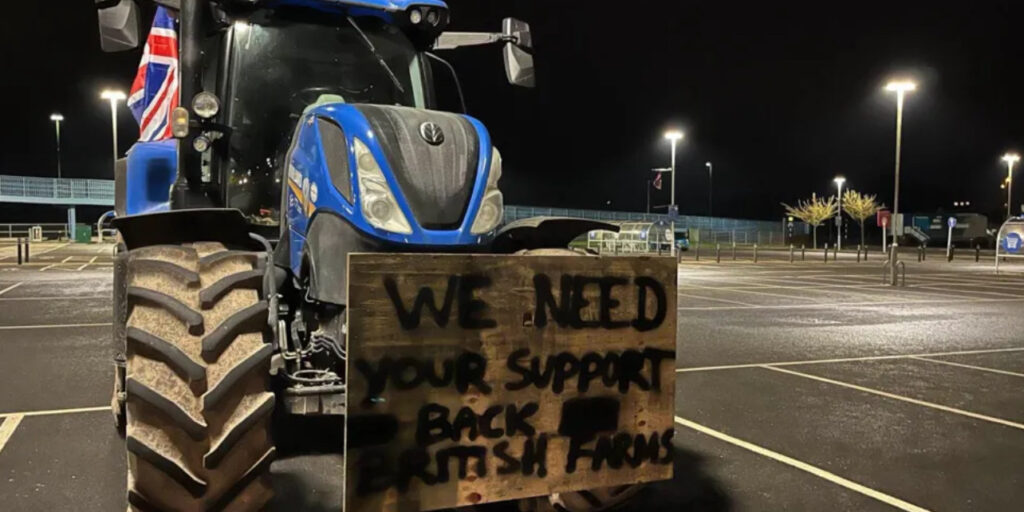A convoy of 14 tractors will traverse Sussex on Friday to protest the government’s changes to inheritance tax on farms, a move that has sparked concerns over the viability of agricultural businesses.
Campaigners from The Final Straw Group are set to visit seven supermarkets along the A24, from Horsham to Brighton, to raise awareness and engage with the public.
The controversial policy, announced by Chancellor Rachel Reeves in the Autumn budget, introduces a £1m cap on agricultural property relief, which will come into effect in April 2026.
From April 2025, farms will be subject to a 20% inheritance tax on land and properties valued over £1m, a change that many farmers argue could undermine food security.
Farmer Ollie Field from Pulborough expressed concerns that the new tax would force farmers to sell land to cover the bill, threatening the sustainability of their operations.
Nellie Budd, from Brockham, Surrey, warned that the tax would make many farms unviable, especially for older farmers already struggling with financial uncertainty.
Currently, agricultural properties are exempt from inheritance tax, but under the new rules, farmers will be required to pay the tax on land and properties exceeding the £1m threshold.
The protest is aimed at raising awareness among the public about the potential consequences for food production.
The tractor convoy, which began at Tesco in Broadbridge Heath, will make stops at major supermarkets including Lyons Farm Retail Park in Worthing, Tesco and M&S at Holmbush Centre, Sainsbury’s at Portslade, Tesco in Hove, and Asda Hollingbury in Brighton.
The farmers will deliver letters to each supermarket and engage with shoppers, seeking support and understanding about how the policy could disrupt food supply chains.
The UK government has defended the policy, noting that the inheritance tax on farms is reduced from the standard 40% rate.
A government spokesperson also highlighted that payments could be made interest-free over a period of 10 years, affecting around 500 estates annually.
They argued that the approach is balanced and is essential for addressing public service needs, while also noting a £500bn investment in farming over two years.


